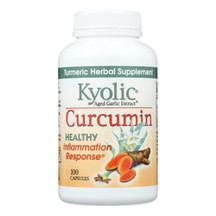Dec 17th 2024
Health Benefits of Turmeric

1. Anti-Inflammatory Properties
One of turmeric's most notable benefits is its ability to reduce inflammation. Curcumin has been shown to block inflammatory substances in the body, making it effective for managing conditions like arthritis. Studies suggest that curcumin can alleviate osteoarthritis pain and may work as effectively as nonsteroidal anti-inflammatory drugs (NSAIDs) like ibuprofen 1 5 .
2. Antioxidant Effects
Turmeric is rich in antioxidants, which help combat oxidative stress and protect cells from damage. This property is crucial in reducing the risk of chronic diseases such as heart disease and cancer. Curcumin not only acts as an antioxidant but also enhances the activity of other antioxidants in the body 3 4 .
3. Heart Health
Research indicates that turmeric may lower the risk of heart disease by improving endothelial function, which is vital for maintaining blood vessel health. A study found that patients who took curcumin supplements before and after coronary artery bypass surgery had a significantly reduced risk of heart attack during hospitalization 3 . Additionally, curcumin may help manage cholesterol levels, further supporting cardiovascular health 4 .
4. Support for Mental Health
Curcumin has shown promise in improving symptoms of depression and anxiety. A review of studies indicated that participants who supplemented with turmeric experienced significant improvements in their mental health symptoms 2 . While more extensive research is needed, these findings suggest that turmeric could be a beneficial adjunct therapy for mood disorders.
5. Potential Cancer-Fighting Properties
Early studies have indicated that curcumin might inhibit the growth of cancer cells and shrink tumor size in animal models. Although human studies are limited, there is hope that turmeric could play a role in cancer prevention and treatment strategies 2 6 .
6. Digestive Health
Turmeric may aid digestion and help alleviate symptoms of digestive disorders such as irritable bowel syndrome (IBS). Some research suggests that curcumin can improve gut health by reducing inflammation in the digestive tract 5 6 .
How to Incorporate Turmeric into Your Diet
Adding turmeric to your diet is simple and versatile:
- Culinary Uses: Use turmeric powder in curries, soups, smoothies, or teas.
- Supplements: Curcumin supplements are available in various forms; however, it's essential to consult a healthcare professional before starting any new supplement regimen.
- Golden Milk: Combine turmeric with milk (or a dairy-free alternative), black pepper (to enhance absorption), honey, and spices like cinnamon for a soothing drink.
Considerations
While turmeric is generally safe for most people when consumed in food amounts, high doses or long-term use of supplements may cause gastrointestinal issues or interact with certain medications. Always consult with a healthcare provider before starting any new supplement, especially if you are pregnant, nursing, or have underlying health conditions.
Conclusion
Turmeric is more than just a culinary spice; it offers a plethora of potential health benefits backed by scientific research. From its anti-inflammatory and antioxidant properties to its supportive role in mental health and heart health, incorporating turmeric into your daily routine can be a simple yet effective way to enhance your overall wellness. As research continues to unfold, turmeric's reputation as a powerful natural remedy will likely grow even stronger.

